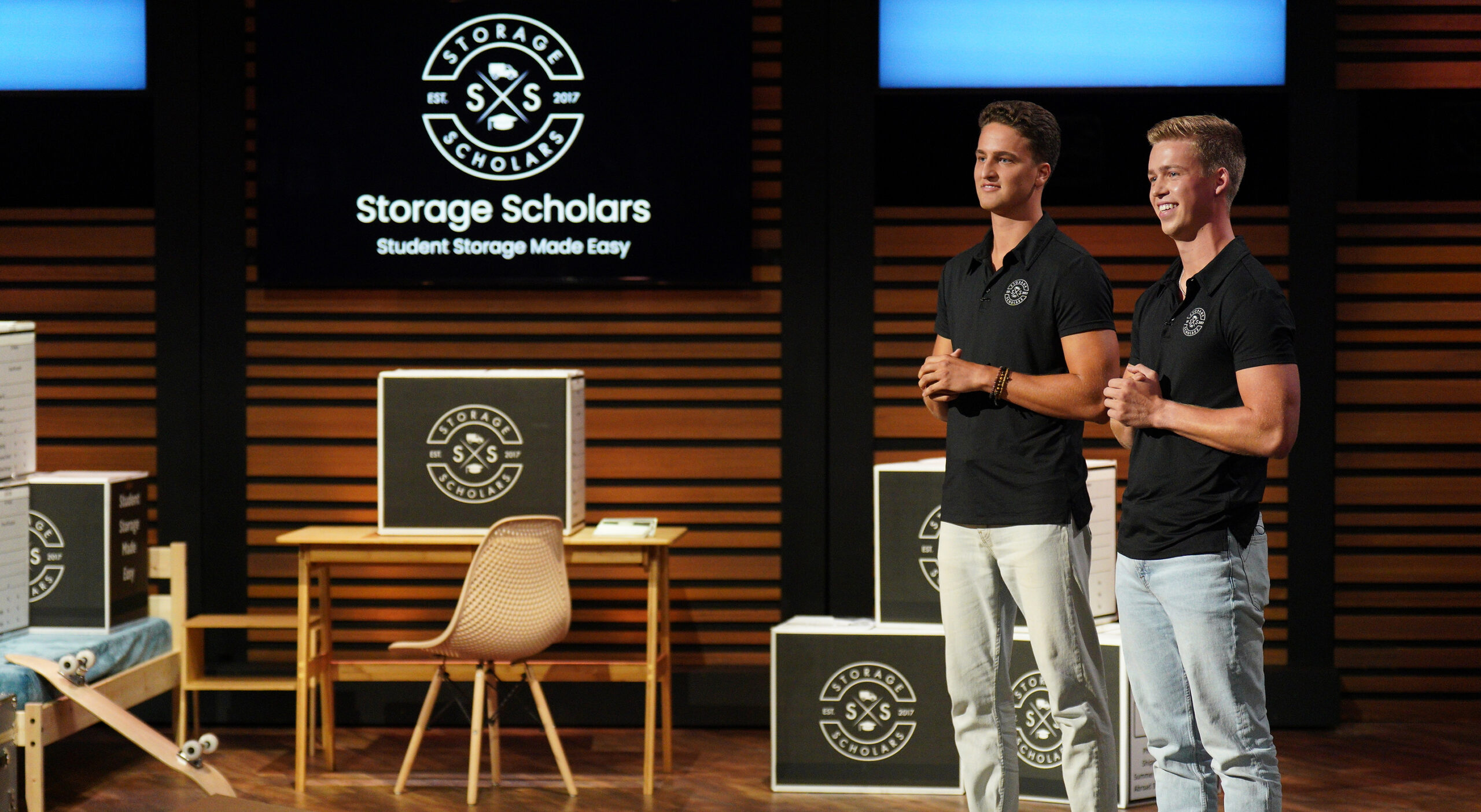
Storage Scholars
FROM THE FOREST TO THE TANK
By Rob Daniels and Elaine Tooley
On October 14, 2022, an estimated 3.4 million viewers tuned into ABC’s “Shark Tank,” to see what new ideas burgeoning entrepreneurs were pitching to experienced potential investors. That night, the audience watched two young Wake Foresters – Sam Chason (’20) and Matt Gronberg (’20) – explain the plans behind Storage Scholars.
It was not the first time they had applied to pitch their business on the long-running reality show. Having attempted to make the cut before, they knew the work it would take – written applications, video submissions, interviews, meetings with producers, setting up their set.
“It was definitely a part-time job for nine months,” recalled Gronberg. “We dropped everything we were doing for ‘Shark Tank’ to ensure we had a good performance or a very good national commercial.”
The two appeared before Mark Cuban, Kevin O’Leary, Lori Greiner, Robert Herjavec and Daymond John on Episode 4 of Season 14. After their pitch, they received four offers and ultimately negotiated a deal with Cuban – $250,000 for 10% of the company.
“He has a lot of companies in his portfolio that are adjacent to higher education,” Gronberg said. “It made a lot of sense. We thought there would be a ton of synergy.”
And there has been.
“Our relationship has been phenomenal,” explained Chason. “We share regular updates with him and ask serious questions about the business, getting his opinion. He very much invests in entrepreneurs and their experiences. It’s a very low stress investor experience and not the typical one.”
Storage Scholars was 5 years old by the time Chason and Gronberg went before the panel of Sharks. It started on an ordinary day in October 2016. Chason, a native of Mount Kisco, New York, was a first-year student at Wake Forest with roommates from China and Ethiopia. He noticed the inherent difficulties in accruing stuff and being thousands of miles from home.
“They might bring two big suitcases overseas,” Chason said. “They’d shove them in a closet, but then they’d buy a bunch of other things here. And they looked at me, as their resident American friend, (as if to say), ‘Like, what do I do with this?’”
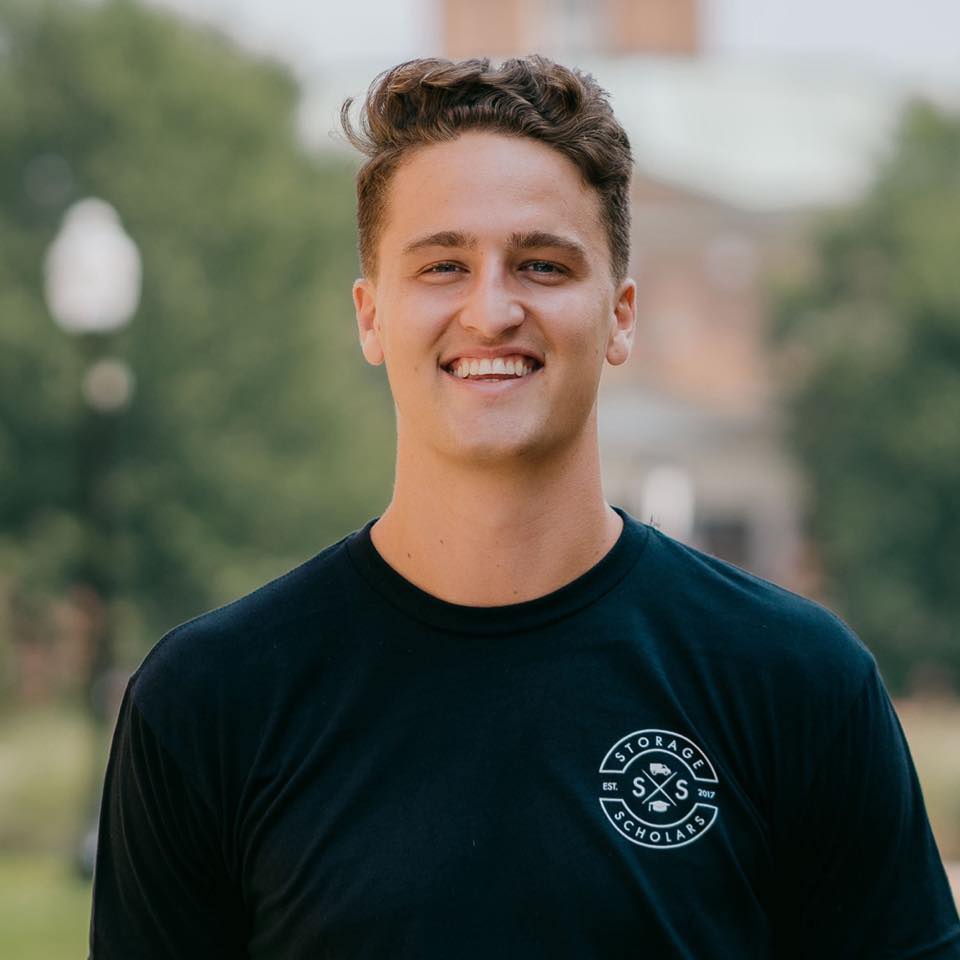
Chason had seemingly been born with an entrepreneurial spirit and a desire to solve problems. At 5 years old, he set up a lemonade stand, figuring it out as he went. He didn’t eat lunch during his middle school years because he was busy selling Arizona Iced Tea to his classmates, and his locker was known to be the spot for purchasing candy between classes. He dabbled in landscaping, garage clean-outs and pet care, and he even dropped flyers in his Westchester County neighbors’ mailboxes advertising “Sam’s Handyman Services.”
One day, as his father, David, was driving Chason to soccer practice, they passed a Sears Craftsman Riding Lawn Mower on the side of the road with a “free” sign on it. Chason had never missed a soccer practice before that day, but his attention was fully diverted from the pitch. They towed the lawn mower back to their house behind the minivan. Twelve-year-old Chason asked to visit the auto parts store for some oil filters. Then, he found a toothbrush and scrubbed the six-and-a-half horsepower machine clean. After he researched and completed some repairs, he consulted his grandfather, an antique dealer, on appropriate pricing for resale. He listed it on Craigslist for $600, and sold it for $500, receiving an additional $50 tip from the buyer for being a good and honest businessman.
That lawn mower started what would become Chason’s epic garage sales. He picked up items and stashed them in his parents’ garage. Not being able to drive, he had to attract customers to come to him. Once the contents reached the ceiling, he would advertise on Facebook, Craigslist and the local newspaper. He would sell anything. He held an inventory list on a clipboard and allowed his customers to make him an offer. He woke up at 4:30 a.m., ready to start negotiating with interested pickers.
“It was the most electric entrepreneurial experience ever because I was 13, 14 or 15 years old,”
Sam Chason (’20)
In the meantime, once he was of age, he started working as a server at a catering company that served the corporate titans in New York City and Greenwich, Connecticut. He saved money from the job and his entrepreneurial ventures to attend Wake Forest. And that’s how he ended up with friends from across the globe with a problem that needed to be solved.
Problems for others often look like opportunities for Chason. It didn’t make sense for his roommates to ship their belongings back home only to need them a few months later.
“I knew there had to be an easy way for students to move in and out of school,” he said.
With an idea in his head, Chason took a ream of paper to the Z. Smith Reynolds Library and printed off flyers. He went room to room in his residence hall and across the Wake Forest campus offering to pack and store his fellow classmates’ belongings. Sixty-four students took him up on his offer, and he yielded $18,000 in revenue. Gradually, word got around, and Chason needed help. He hired fellow Wake Forest students to join him in the heavy lifting, and one fortuitous hire turned out to be especially critical to the entire operation.
One Halloween night, Chason was serving as a driver to those who needed rides. Gronberg got in the front seat and the two started talking. Chason convinced Gronberg to leave his $7.25-an-hour gig as an intramural referee to join him in the storage and moving business for a much better hourly rate.
“I worked for Sam every day for nine days,” Gronberg said. “I made more in a week than I would have the entire semester. That’s how we met.”
As a student, Chason embraced Wake Forest’s nationally recognized entrepreneurship program and majored in business and enterprise management with a minor in entrepreneurship and social enterprise. In between working with Campus Kitchen, participating in Hit the Bricks, playing club rugby and soccer, and serving as an RA, Sam earned three scholarships for entrepreneurship: the Chambers Family Endowment Fund for Entrepreneurship, the Orton Merit Fund for Entrepreneurship and the Richard “Dick” T. Clay Fund.
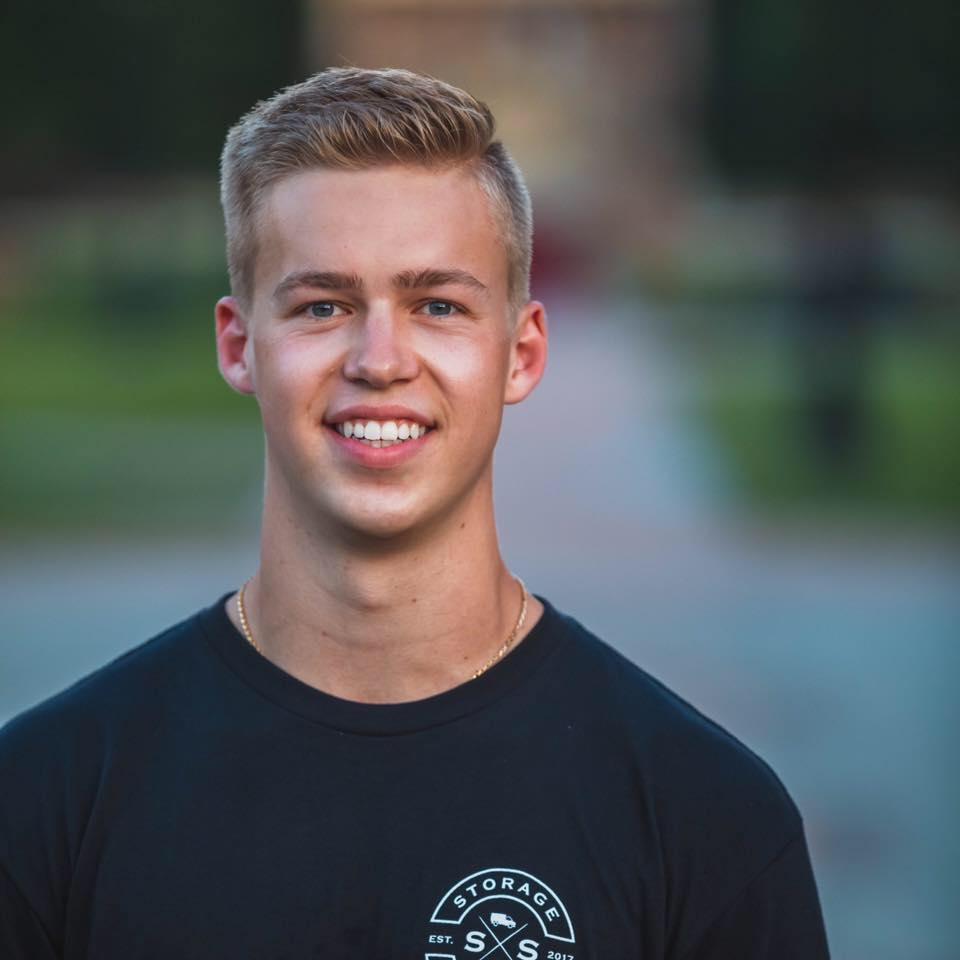
His entrepreneurial acumen was honed by Dan Cohen, the John C. Whitaker, Jr. Executive Director of the Center for Entrepreneurship, and Greg Pool, associate professor of practice at the Center for Entrepreneurship. Chason benefited from the one-two punch of complementary experience that Cohen and Pool offered.
Gronberg, from Boxford, Massachusetts, was intent on attending medical school. He graduated Wake Forest with a major in biology and minors in Spanish and chemistry. But through his work with Chason, he was hooked on something new. The two also believed their different backgrounds and skill sets would make this venture work.
The Storage Scholars model illustrated there was a market for making customers’ lives easier. Today, that plan points out all the hidden costs that people save by working with the service. There’s no need for parents to spend hundreds or thousands of dollars traveling to campus to help with the move if Storage Scholars is doing it, for example.
Typically, students who don’t want to move stuff back-and-forth every summer, register for Storage Scholars through an app. A week or so before final exams, they receive supplies such as boxes, bubble wrap and tape. They pack up whatever they don’t want to haul, leave it in the room and head to their summer destination, their mental and physical burdens considerably lightened.
Storage Scholars staffers, thanks to the company’s partnership with the institution, access the room a few days later. They pick up the stuff and take it to a secure facility.
Fast forward several weeks. The customers are returning to campus for another semester. They check into their new residence and the belongings they had left in the old one are waiting for them.
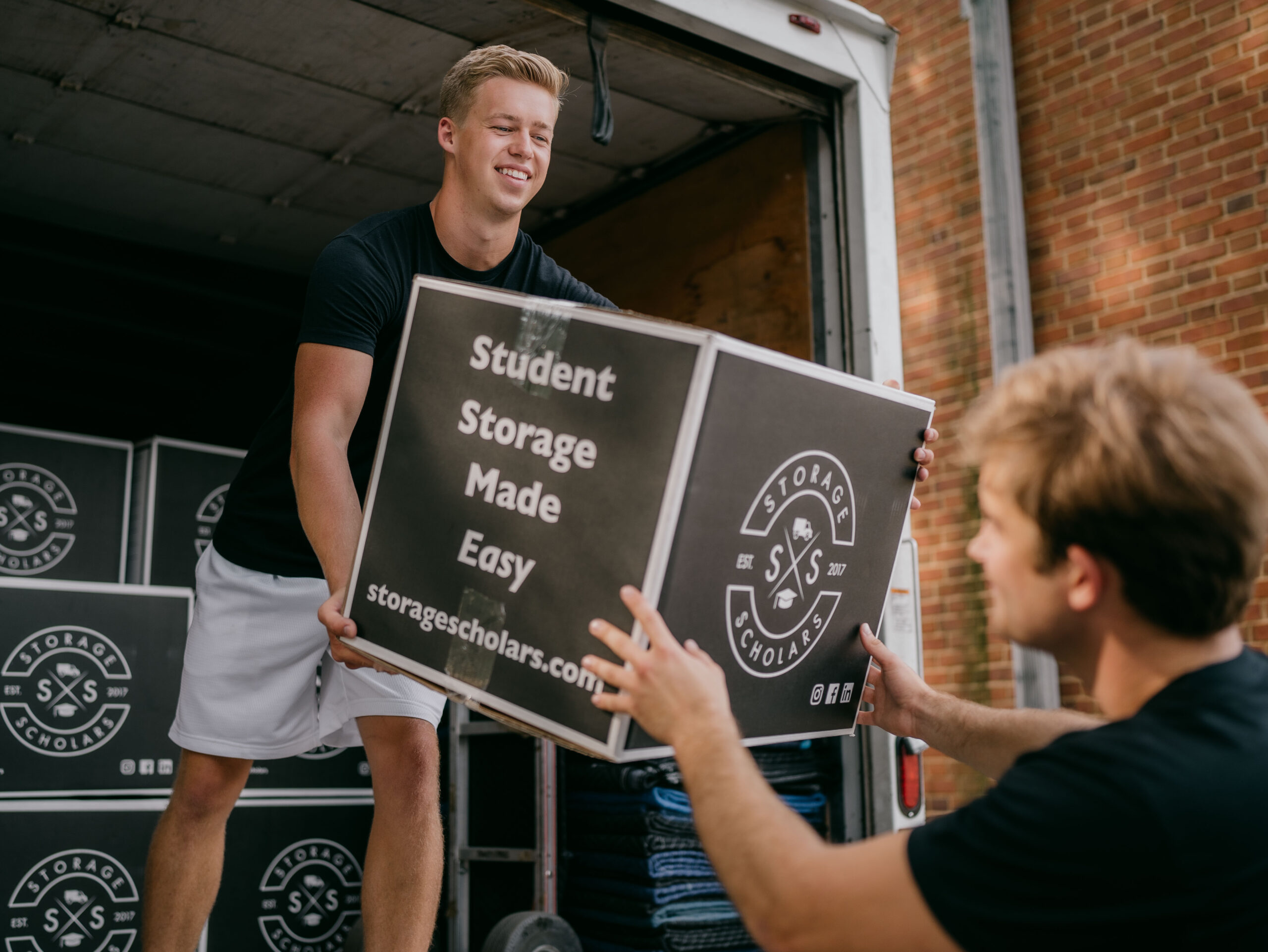
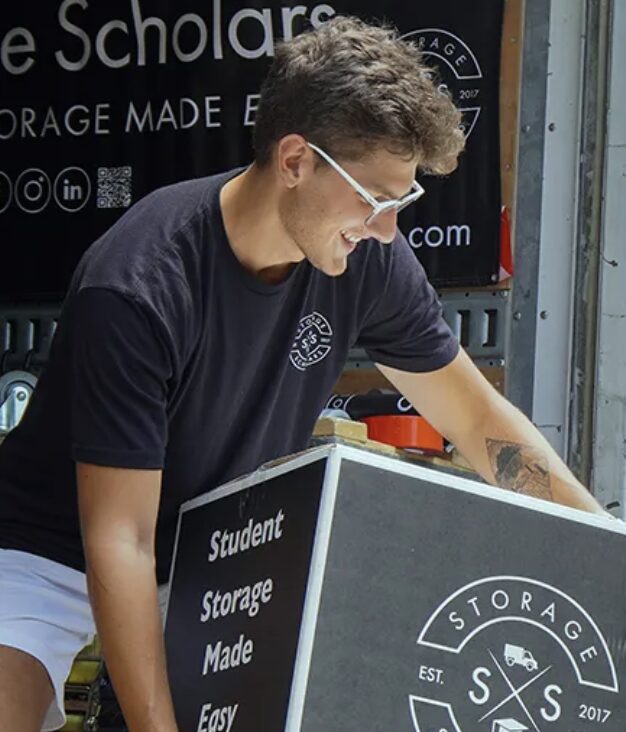
The heavy lifting is done by fellow students. More than 1,200 students at various locations worked for Storage Scholars in the 2023-24 academic year.
Having students on the payroll is among the more satisfying elements of the business for both principals. Chasen and Gronberg told the “Shark Tank” crew that they graduated from Wake Forest debt-free thanks to the company’s early success. Remaining viable helps Storage Scholars employ people who were once in the founders’ shoes: staring down student debt.
Chason is the out-front salesman, pitching colleges and universities on the merits of endorsing Storage Scholars. The stamp of approval gives the brand credibility on campus and physical access to it, but it also helps the school because it allays student and parental fears about the move-in and move-out process.
Gronberg’s work evolved from lifting and moving boxes to client relations and technology management, which includes oversight of proprietary technology that tracks scanned boxes, handles insurance on expensive items and any number of other details. Today, he ensures that Storage Scholars’ operations are smooth in all of the company’s several dozen locations.
“With all the colleges we do have, how do we make sure the service gets better year-over-year?” he said, describing the job. “I do all the project management of our technology.”
They’re based in Austin, the still-growing tech hub of more than 1 million people. They serve students in 36 states and Washington, D.C., in schools as close as the University of Texas, as far as Seattle University, as familiar as Wake Forest, as large as Arizona State University (80,000) and as small as Wofford College (1,800).
“We’re small business owners,” Gronberg said.
“We’re running a moving company and a storage company that’s cash flow positive. Kind of the Mark Cuban philosophy. Be profitable, but do something that’s good for you and your family. Be your own boss, but have an impact. Have an impact on your community. Change someone’s life.”
Matt Gronberg (’20)
As of summer 2024, the average customer rating of Storage Scholars services on one platform was 4.7 on a 1-to-5 scale. In the grading system of most college classes, that’s an A.
“At this point, I think we’ll have to reassess how we’re growing,” Chason said. “But for now, (our philosophy is) let’s hire great people, let’s keep them very excited, let’s tell the story. Let’s maintain our service quality and grow as fast as we can.”
According to the Bureau of Labor Statistics, one of every four startup businesses fails in the first two years and nearly half (45%) don’t make it to the fifth birthday. Tales of struggle and rebooting are the norm.
While the five-year journey of Storage Scholars from Wake Forest to “Shark Tank” sounds fairly straightforward, the growth came with its fair share of challenges. Chason will quickly admit there were days when the calculations failed and the couch didn’t fit through the door. He’ll tell you about those first unsolicited, door-to-door sales pitches, which were often met by skepticism. And Gronberg remembers the decision to buy a residential moving company in Winston-Salem in the early days of COVID-19 – not the best time to purchase a business that required personal interaction.
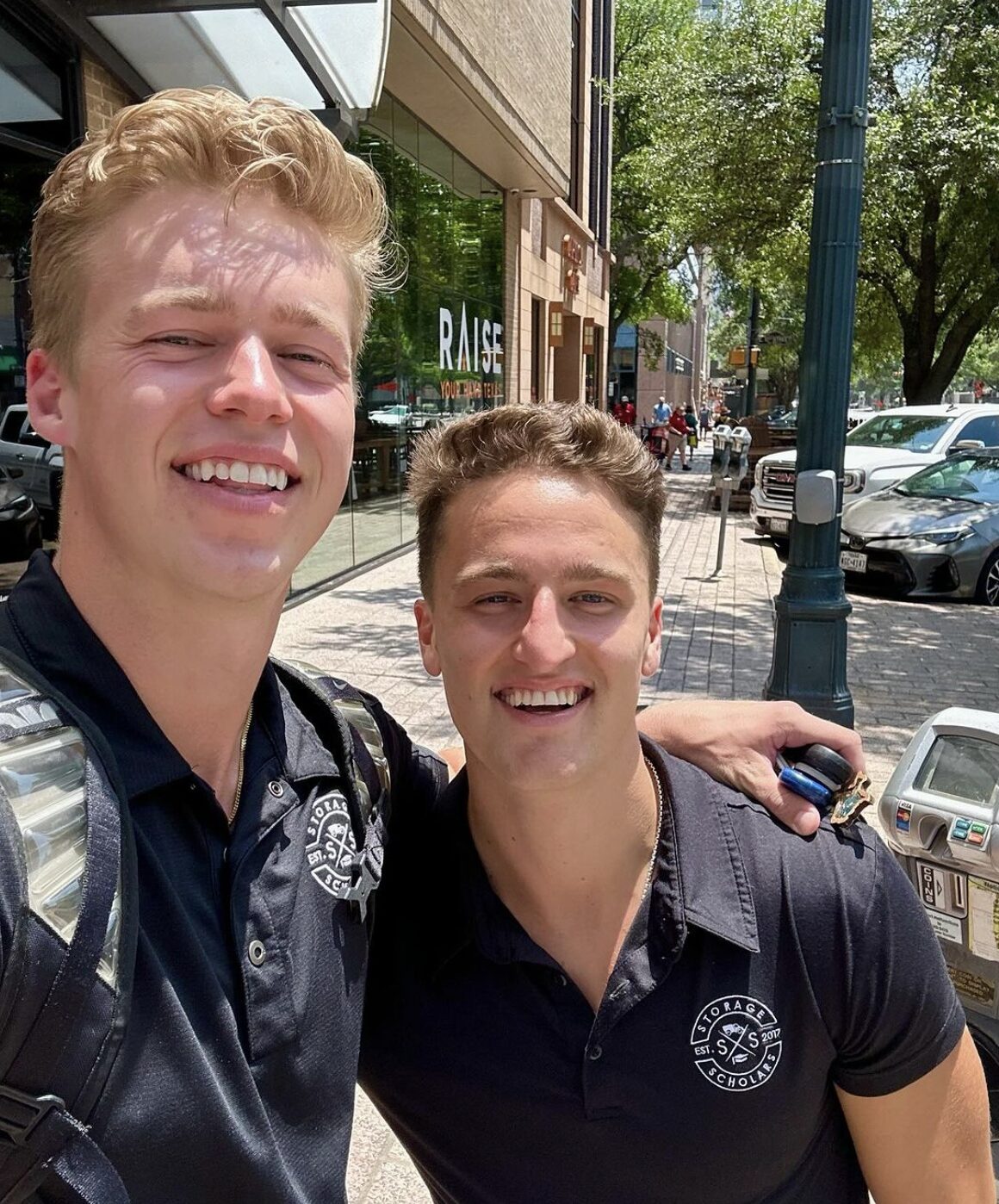
Only in their mid-20s, Chason and Gronberg have faced hard questions about business that have proved invaluable. And through each experience, Chason determined failure would have its benefits.
“I have become a very level-headed problem-solver,” he said.
Together, Chason and Gronberg have taken their solution to a roommate’s problem all the way to the top of the entrepreneurial world. Landing a contract with Mark Cuban and focusing on the people in their organization, they remain committed to their calling:
“Do common things uncommonly well.”
